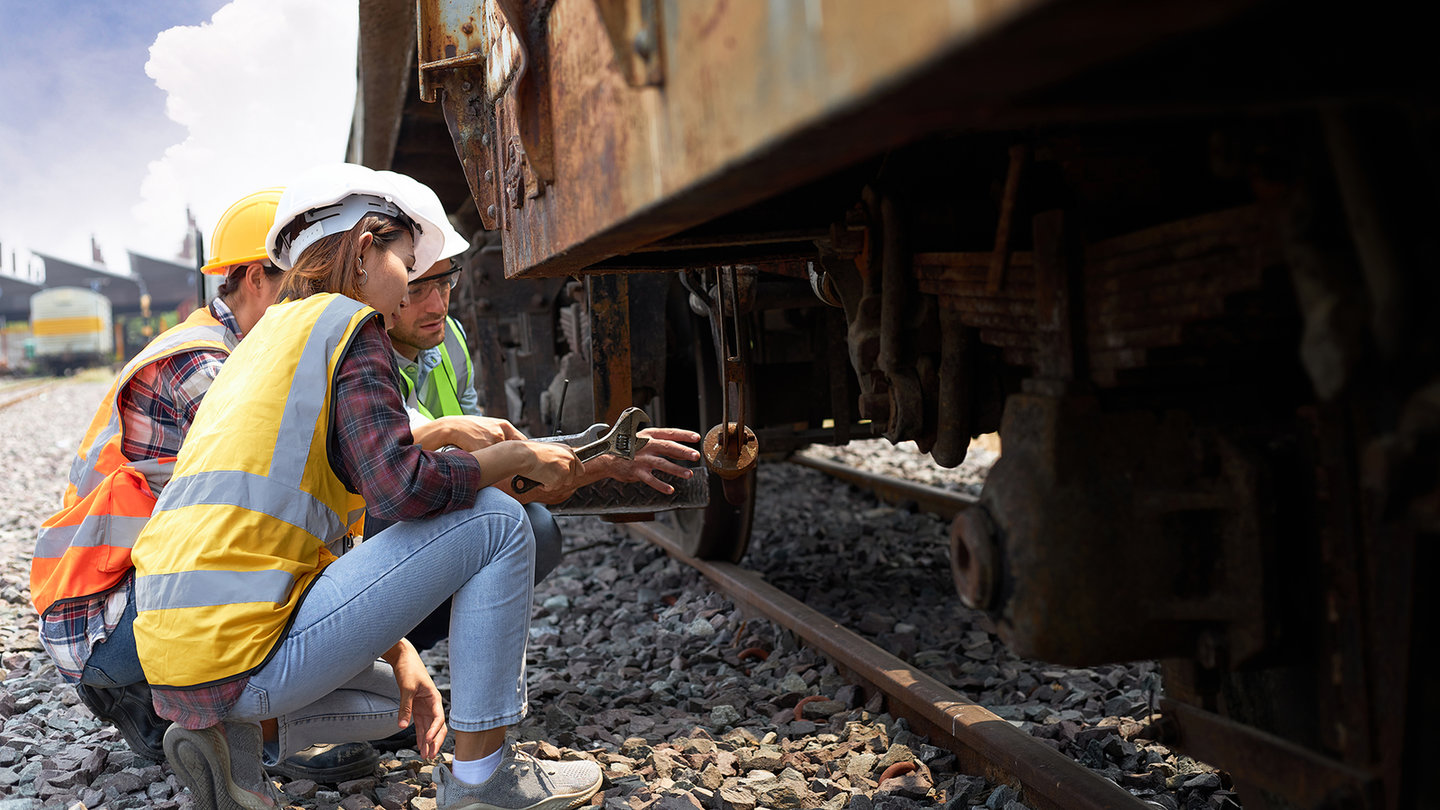All Images: Virgin Hyperloop
Workforce
Revolutionising UK railways: investing in skills and training
Following news that France plans to invest €100bn in rail transport by 2040, Owen Goodhead, operations director of Randstad UK, ponders how the UK can keep up by investing in salient skills.
Antonio Colla, global railway marketing & sales manager at ABB
Recently we learned of French plans to invest €100bn in rail transport by 2040 as part of a government push to reduce the country’s carbon footprint.
The plan includes launching express commuter trains akin to the Paris RER system in major cities. French Prime Minister Elisabeth Borne said this was to tackle "perceived inequalities'' between Paris and other parts of the country.
Assuming the British Prime Minister isn't in a position to match France euro-for-euro in fresh funding – and with the Oakervee Review’s Lord Berkeley suggesting the cost of HS2 could hit £170bn, that might be understandable – what can the UK do to ensure British railway industry keeps up with the French?
The railway skills gap
At the very minimum, we could devote some serious effort to narrowing the country’s skills gap.
A few years ago, I remember more than 80% of UK companies telling the Confederation of British Industry (CBI) that a lack of skills was harming the country’s competitiveness. This constraint is holding back growth in corporate productivity and worker pay – both have flatlined for a decade. I cannot imagine the situation has improved.
Boosting skills would require money, certainly, but it would also need government bandwidth – neither of which is guaranteed. But this is our wishlist for the rail industry. To his credit, the Chancellor has already put forward the idea of using reform of EU-era insurance regulations known as Solvency II to unlock infrastructure investment.
Some 28% of UK workers are underqualified for their jobs. Some skills are missing entirely from sections of the workforce. By way of example, less than half the working-age population in England has the numeracy level expected of primary school children.

This is despite the fact that manufacturing and engineering businesses are maintaining training spending, bucking suggestions that businesses are scaling back investment.
Our sector is already struggling to cope with the growing number of trains in operation; overcome staff losses through retirement; and cope with returns home by non-UK Europeans, who made up 17% of the workforce pre-Brexit.
While the OECD estimates that, if the UK’s skills mismatch were brought in line with our best-practice peers, this could boost productivity by at least 5%, that’s not what the future appears to hold.
McKinsey has forecast the UK skills mismatch through 2030 with the greater use of automation and IT within jobs. The UK is not on track to produce the skills needed.
According to the Industrial Strategy Council, an additional 7 million people – 20% of the workforce – will be significantly under-skilled for their jobs by 2030. That will leave many more workers less productive in their jobs, or out of work completely.
Long-term thinking can bridge the gap
The source of these shortfalls is as striking as their scale. The mismatch is most acute for digital skills. There will also be severe shortages in management and leadership, communication and negotiation, and critical thinking and decision-making.
These are not skills for which there are off-the-shelf academic qualifications, but skills typically acquired on the job.
The CBI has called on the Chancellor to allow more overseas workers into Britain by expanding those that qualify for work visas through its shortage occupations list. It’s a good short-term fix, but we need a long-term solution that gets serious about skills.
At one level we need more people with postgraduate degrees in telecoms and wireless networks, knowledge that is vital to the industry as train safety increasingly relies on signalling information conveyed via wireless networks.
We also need a national apprenticeship system that is fit for purpose. Businesses have returned more than £3bn in unspent apprenticeship levy funds to the UK Government. This cash could be reallocated to support training people to maintain and build our railways as we reshape them for the hybrid-working, carbon-neutral future.
We need a radical shift in our education and training model.
On another note, we need a radical shift in our education and training model. For hundreds of years, Britain’s educational system has focused on developing academic skills in young people. We now need a new model.
We will need to educate older people across a wider range of skills, from cognitive to vocational, to interpersonal. Life-long learning will need to move from aspiration to reality. And in-work training will need to become the rule, not the exception.
Vocational training, long the poor cousin of the UK’s educational system, needs to be rehabilitated, urgently. We need new modular, digitally-delivered training, seamlessly integrated into rail careers, supported by a lifelong educational passport and training credits.
Private sector employers need to do their part, too. They need to revamp their training programmes so that investment in staff is given equal attention and financing as an investment in machines.
The rewards for solving this problem – higher productivity among companies and higher pay and job satisfaction for workers – are immense.
For travel and tourism industry data, comment and analysis, visit GlobalData's Tourism Intelligence Centre.
Main Image: Owen Goodhead, operations director of Randstad UK